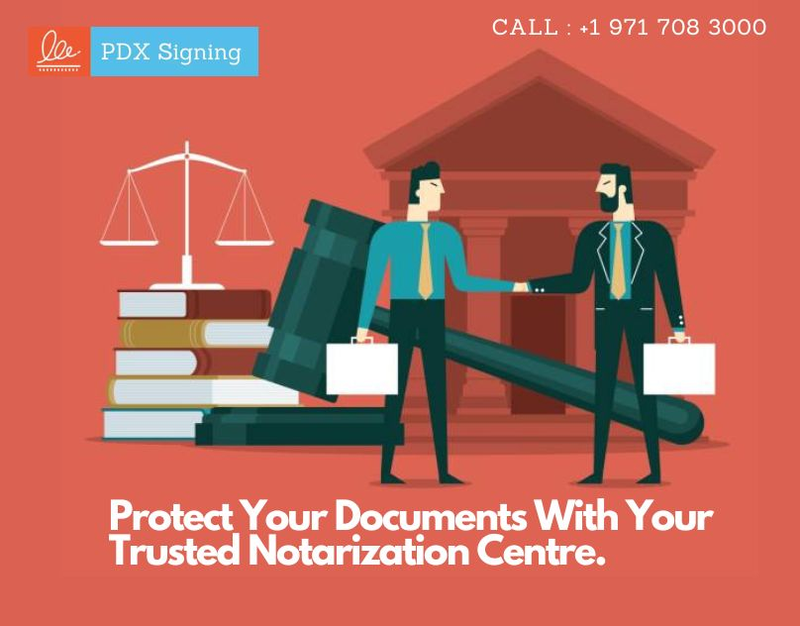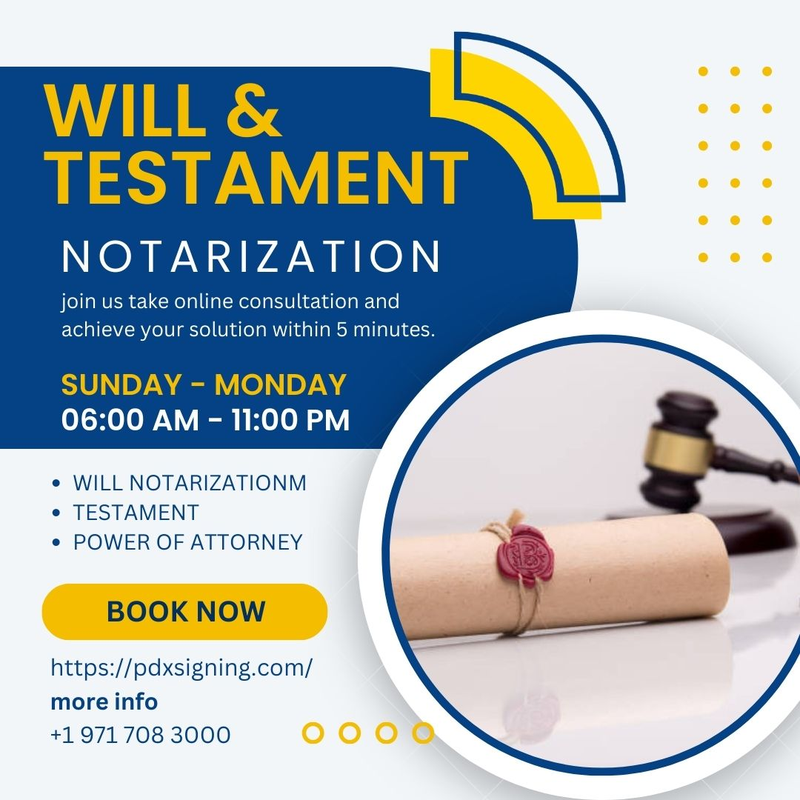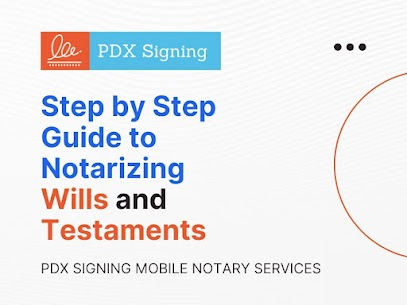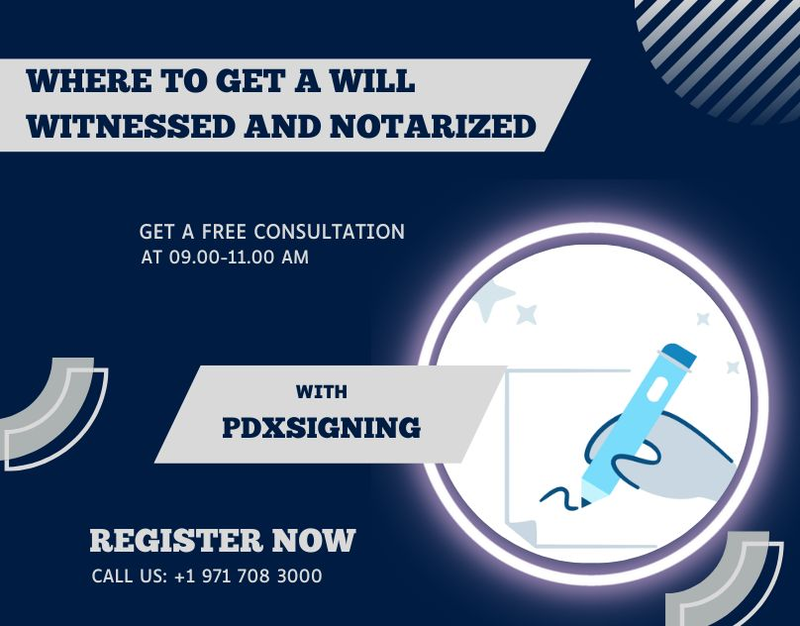


instructions and requests from a 20-something will differ greatly from those from a 50-year-old.
documents. Depending on your unique situation, more documents are optional.
These are:
1. A Will
2. Designations of Beneficiaries
3. Medico-Legal Proxy
4. A living will
5. Consistent Power of Attorney
particular situation.
included. They should ideally also be able to show affection, understanding,
and attentiveness.
of your assets.
everyone, regardless of age, needs to have. Please feel free to use this as a road map as you create your estate plan. Concentrate on creating each of the 5 documents in the correct order, and you'll have a strong Estate Plan in no time!
state-specific Estate Plan in just 20 minutes with the help of our estate planning notary.


Property sales and purchases are complicated processes. There is a tonne of paperwork involved in the transfer of such a precious asset. Without handling a deed, a property exchange cannot be considered complete. But did you know that there are various kinds of deeds? A quitclaim deed, a deed of trust, and everything in between will all be covered in this essay. Get ready to become an informed property owner, so get your signing pen ready!
What is a trust deed?
Buying a house or other piece of property will probably require taking out a loan. If so, a deed of trust will probably be required. A written agreement between a borrower and a lender is known as a deed of trust. The bearer of the legal title to the property is designated in this agreement as a neutral third party, or trustee. While the borrower repays the lender's loan, this arrangement acts as leverage. The borrower still has the legal right to the property title in the meantime. As a result, it is the borrower's duty to look after and maintain the property.
Those Involved in a Trust Deed
A deed of trust is an agreement between three persons, just to be clear. Everyone participating has a distinct job to play.
The Trustor – The person who is borrowing money to buy the property is the trustor.
The Trustee – A third party holding the legal title (sometimes referred to as the "bare" title) is the trustee.
The Lender – The "beneficiary" is another name for the lender. The money for the loan is provided by the lender.
The purpose of this arrangement is to safeguard the lender in the event that the trustor misses a payment.
Mortgage vs. Deed of Trust
The majority of the time, borrowing money is required for home purchases. A "loan" is a term used to describe borrowing money. After the loan has been approved, the lender will want to safeguard their investment. Either a mortgage or a deed of trust will be used by the lender to accomplish this.
Promissory Note
A deed of trust is frequently used in conjunction with a promissory note . So it's crucial to talk about how a promissory note fits into this procedure. In a promissory note, the borrower makes a commitment to repay a loan. The terms of the loan are detailed in this document, which is commonly just referred to as a "note."
What do I need in order to notarize my deed?
The paperwork can be a whirlwind of confusion, especially when it comes to concerns involving buying or selling real estate. When going to a notary appointment for deed of trust notarization , make sure to literally cross all the t's and dot the i's to make your life easier. You should bring the following:
The legal document that needs to be notarized - Bring the original copy with you, please. There will need to be a new notarization if any changes are made. Fill out any required fields in advance to save time during the appointment. But wait to sign it until you're in front of a notary public portland.
Photo Identification - Identification with a photo A genuine, photo ID is required in order to notarize something officially. The two most frequently acceptable forms of identification are a current driver's license or passport. Check to see if a different kind of identification—such as a passport or driver's license—is recognized before using it.
Signing parties - The signatures of all parties are required on many papers in order for them to be accepted. Have everyone present for the notarization at once to save time and money. A document may be notarized more than once, even by different notaries, if this is not possible (for example, if the signer resides in a different state). However, this greatly lengthens the process and typically results in higher processing costs.
Notary Fees - As was already indicated, certain companies provide free notarial services. The majority of notaries, nevertheless, levy a fee for each signature. State laws typically set a limit on this fee at a specified amount. For instance, notaries in Portland, Oregon are only permitted to charge $10 for each signature. However, certain services might have extra costs. For instance, a travelling notary typically levies a fee.
Conclusion
A thrilling step in a person's journey is purchasing real estate. You are purchasing a space for memories to build and life to unfold whether you are purchasing your first home as a family or your seventh office. However, real estate deals are fraught with red tape and legal hiccups. The most important of these is a trust deed. This document assists in the acquisition of real estate for which a loan is necessary. While the buyer repays the loan, a trustee will hold the property's legal title. The purchaser continues to have an equitable interest in the asset and is therefore still permitted to use it during this time. Research the specifics of your locality because real estate transaction details differ by state. Happy buying and selling real estate!
Some of the key purposes of a will include:
- Distribution of assets: A will allows the testator to specify who will receive their assets after their death. This can include property, money, investments, and personal belongings.
- Appointment of guardians: If the testator has minor children, a will allows them to appoint a guardian to take care of their children in the event of their death.
- Naming an executor: A will allows the testator to name an executor, who is responsible for managing the distribution of assets and ensuring that the instructions in the will are carried out.
- Tax planning: A will can be used to minimize taxes by creating trusts or making charitable donations.
- Avoiding disputes: By clearly outlining their wishes in a will, a testator can help prevent disputes between family members or other potential beneficiaries after their death.
Differences between a Will and a Trust
A will and a trust are both legal documents that are used to distribute assets after someone's death, but there are some key differences between the two.
- Purpose: A will is a legal document that outlines how a person's assets will be distributed after they die, whereas a trust is a legal arrangement where a trustee holds and manages assets for the benefit of the trust's beneficiaries.
- Probate: A will must go through probate, which is the court-supervised process of validating a will and distributing assets according to the will's instructions. A trust, on the other hand, typically does not go through probate, which can save time and money.
- Control: With a will, the testator (the person creating the will) retains complete control over their assets until their death. With a trust, the trustee is responsible for managing the assets and distributing them according to the trust's instructions.
- Privacy: Wills are public documents and can be accessed by anyone, whereas trusts are private documents and the details of the trust and its assets are kept confidential.
- Time of effect: A will only takes effect after the testator's death, whereas a trust can take effect immediately upon its creation or at a specified time in the future.
- Flexibility: Trusts can be more flexible than wills, as they can be used to address a wide range of estate planning goals, including tax planning, asset protection, and charitable giving. Wills are generally less flexible and are primarily used to distribute assets to heirs.
Overall, whether a will or trust is best for an individual depends on their individual circumstances and goals. It is recommended to seek the advice of a qualified power of attorney oregon to help determine the best approach for your specific situation.

